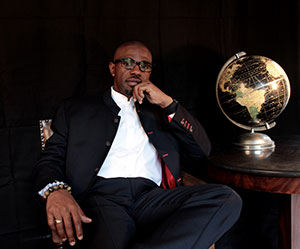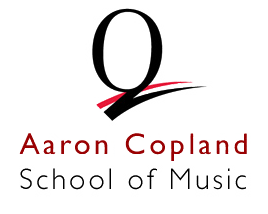
Antonio Hart
Professor
Fields of Study:
Saxophone
Degrees and Studies:
MA, Queens College
Biographical Information:
Through the course of my career my performing has been realized through the opportunity to play in bands with some true masters in Jazz. The Duke Ellington Big Band, The Mingus Big Band, The Dizzy Gillespie Big Band, The Arturo O'Farrell Big Band, The Gerald Wilson Big Band, and The two-time Grammy winning Dave Holland Big Band. In The Dizzy Gillespie Big Band I've had the opportunity to sit in the second alto saxophone chair next to the likes of Jerome Richardson, Jerry Dodgion, and the Great Frank Wess. These teachers gave me a wealth of knowledge that I know could not be learned in school. I learned how to breathe through the instrument, how to hold it correctly, correct posture, and how to produce a good sound with all the textures that are available to me. After 13 years in this band I've graduated to the first chair thanks to my teachers. These experiences were important to me because the beginning of my career was in smaller ensembles, and historically the opposite was the norm: almost every soloist that we know in Jazz started out his or her career in the big band. This was where you had the opportunity to sit next to a master night after night. I've made it a point to be in these ensembles to get the knowledge directly from the masters, and not rely only on books. Now, my approach on the saxophone is a combination of all that I've learned in these bands, developing an identifiable sound, a strong rhythmic concept, and a personal approach to harmony.
While studying at Queens College I learned orchestration and arranging techniques that were used on several of my solo recordings. Also, while teaching at Queens College I took Professor Mossman's Arranging class to learn new techniques. Shortly thereafter I was commissioned to write five arrangements (four original compositions and an arrangement of the Jazz standard, "Stars Fell over Alabama," for the North Illinois University Jazz Program Big Band. I continue to get invitations from all over the world to perform, record, and give master classes. The reason this is happening is because of the reputation I've earned over the last 17 years, the body of work I've created, my study of the Jazz tradition, and my passion for this art. I get quite a few e-mails, and calls from students and professionals around the world asking for advice with equipment for the saxophone, recording techniques, studying at Queens College, and what it takes to be a successful musician. I also look forward to exploring new avenues, including Gospel and contemporary music, publishing and technology.
Although performing and touring has been the primary focus of my career, I have deeply engaged in education, which has become an important part of my career. Teaching at Queens College has allowed me to become a more effective musician because I hear students all day long; therefore, my sensitivity as a player is heightened. It is a constant challenge to guide my students in three short semesters of graduate study. While I certainly benefit from my own degree in music education, nothing prepares you totally for what you encounter in the classroom. An effective teacher must be the master of the material, but it is always a challenge to present the material in an effective and engaging manner, to offer useful and instructive criticism and to be prepared to improvise teaching strategy when the situation calls for it. My experience teaching at Queens has been one of self-discovery and growth, which I have enjoyed. I expect the experience will continue.
All of my experience as a performer, recording artist, and composer directly inform my teaching. My experience over the years allows me to give my student's direct contact with someone that has contributed to the Jazz community while continuing to be an active member of it. Also, the theories and techniques I teach to my students are drawn from years of working them out on the bandstand. Furthermore, as a graduate of the program I feel a responsibility to help the program to prosper, and continue the tradition that Professor Jimmy Heath started.
I have taught a wide range of courses at Queens College: Jazz Improvisation; Combo Workshop; Jazz History; Saxophone Quartet; Private lessons and Jazz Musicianship. This varied curriculum has provided me with the opportunity to think through the many facets of my life as a performing Jazz musician and communicate it to the next generation. I have learned much from my experience, and from my students and look forward to our continued growth together. It has also been a great pleasure to have such an excellent colleague in Prof. Michael Mossman. I look forward to working with him to develop and refine our program. In particular, I look forward to the possibility of expanding and growing the Jazz faculty to better serve our curriculum and our students.
Office:
Music Building 215
Phone:
718-997-3809
Email:
antonio.hart@qc.cuny.edu
Website:
http://www.antoniohart.com









